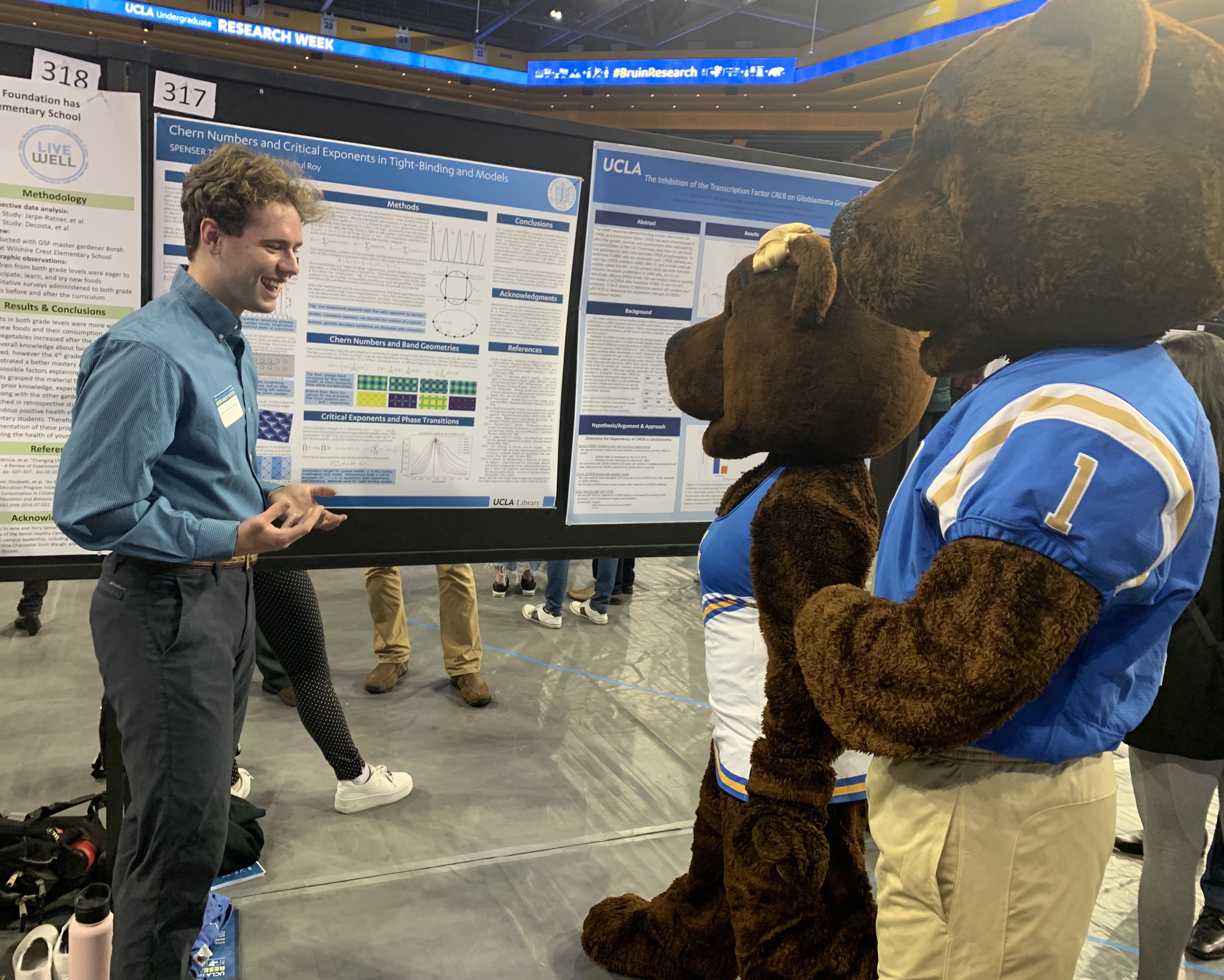
2020 Goldwater Scholar Spenser Talkington
SRC: What has been your most important research experience at UCLA, and what attracted you to the project?
ST: I’ll talk about the research experience that led to my Goldwater scholarship. During my sophomore year, I took a solid state physics course with HongWen Jiang, and got to know him through class and office hours. He then offered me a summer position in his lab and I worked with his group. Fairly quickly I ran into an issue: my simulations of quantum dot qubits had extra oscillations. After a few weeks of careful consideration and comparison we determined that the oscillations were real: Landau Zener interference. I then optimized the algorithms for my simulations and wrote a paper.
SRC: What are your plans for the upcoming year?
ST: Graduate school and fellowships have preoccupied my thoughts a lot lately, however concrete academic goals I want to achieve in the coming year are: (1) complete my studies of the delocalization transition in Chern insulators (2) develop my knowledge of correlation functions and the renormalization group, phrase my work in this language, and write my thesis (3) create course materials for Physics 1C (4) learn more about ARPES and ultrafast spectroscopy.
SRC: What advice do you have for students who are planning to apply for the Goldwater Scholarship?
ST: Be interested in your research, work thoughtfully, and revise your application carefully. I wasn’t passionate about my first research experiences in synthetic chemistry, and artificial intelligence hardware, but found projects in condensed matter physics that I am excited to put my entire efforts into. If you are interested in something, you will have fun, be better at it, and be determined to continue through adversity. Be thoughtful; research is about questions, so ask questions and learn how to answer them through thinking, reading, and talking with others. Applications are tough. Nothing is guaranteed, but nothing is impossible. I think this is well conveyed by the story of Carol Greider who won the Nobel Prize in 2009 and was rejected for a grant later the same day. The Goldwater application is about three times longer than the application that got you into UCLA. Put in your best effort; write and revise thoughtfully. Make every word count.


